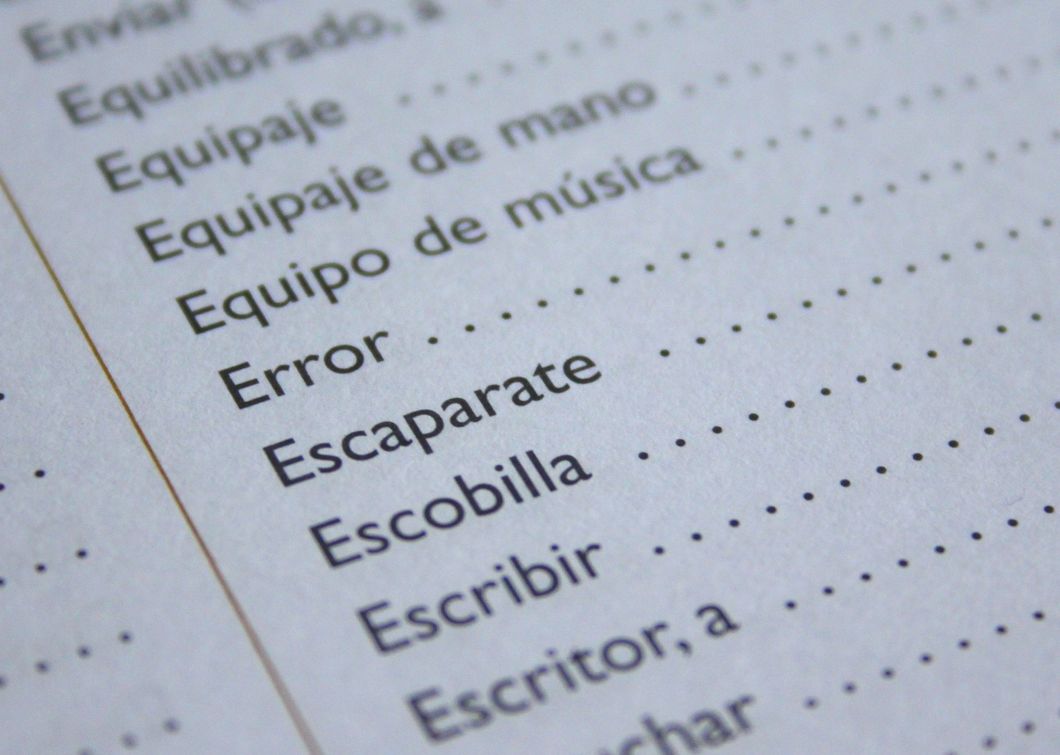For five years of my life, I have dedicated my time, sweat, and tears into learning Spanish. I took my first Spanish class in my freshman year of high school in order to fulfill some of my language requirements in order to graduate. I wasn't planning on falling in love with the language. My passion for language and culture stemmed from having amazing Spanish teachers in high school and even lead me to decide to double major in Spanish and Cultural Anthropology in University.
However, even with amazing teachers, certain concepts are extremely hard for a native English speaker to comprehend. These concepts take a lot of practice and patience. Here are a few that I've found the hardest.
Spanish has gendered words.
In Spanish, most nouns are gendered. There are two articles that usually accompany the nouns, the masculine "el" or the feminine "la." Usually, if the word ends with an "o" it is considered masculine and if it ends with an "a" it is considered feminine.
This specific concept is something you have to think hard about when writing or talking in Spanish. English doesn't have gender assigned to nouns or adjectives so we don't have to think about it when we speak or write. Even now, it's one of the things I struggle with the most when I'm writing in Spanish, especially timed writing.
Subjunctive is thing.
Subjunctive in Spanish is a mood used to discuss hypothetical things like desires, doubts, and emotions. We don't have anything like it in English so when you're first learning the subjective it's extremely hard to understand when and when not to use it.
The subjunctive also uses an entirely different conjugation than the indicative (i.e. the mood used to give concrete facts). For example, if you wanted to say "it's weird that Julie finished her homework" you would say "es extraño que Julie termine su tarea" in the subjunctive vs "Julie termina su tarea" or "Julia finished her homework" in the indicative.
Different punctuation rules.
One of the things I found the most interesting about learning Spanish was learning how they use punctuation differently. Many people know about the upside-down question mark and an exclamation point (¡Que divertido! ¿Cual?) but what I didn't know was that Spanish uses capitalization much less than English does. When writing in Spanish, one doesn't capitalize days of the week, months of the year, and languages. This was hard to do at first for me, but I quickly got the hang of it after a few missed points on tests.
Also, fun fact, Spanish doesn't use the comma to write numbers like 7,398; they use a period. So in Spanish, it would be written as 7.398.
Two different past tenses?
In Spanish, they have two different past tenses: preterit and imperfect. They are used to explain different types of actions done in the past. The preterit is used when you're explaining a specific action or a specific event that happened in the past while the imperfect is used to describe something or someone in the past or a continuous/general action of the past.
The two past tenses were hard for me at first, but are now one of my favorite things to say, especially the imperfect. Certain words in the imperfect past tense are really fun to say, like "trabajábamos" which means "we worked."
Accents!
In English, we barely have any words that we need to put an accent over letters. The ones we do have, like jalapeño or resumé, we have borrowed from other languages. In the U.S. we usually drop the accent in the word anyway.
In Spanish, the accent is used to indicate where the stress is when pronouncing certain words. They also use accents to help differentiate the spelling of certain words.
So, when you're writing in Spanish, be careful with the accents. If you write a certain word without an accent and it needs one, you could say something you didn't intend to say. One of my favorite examples is papa vs papá. If you write "mi papá tiene 60 años" it translates to "my father is 60 years old" but if you write "mi papa tiene 60 años" it translates to "my potato is 60 years old."



















